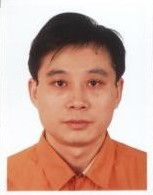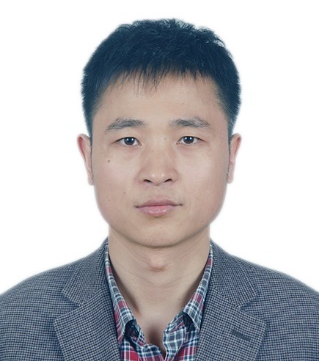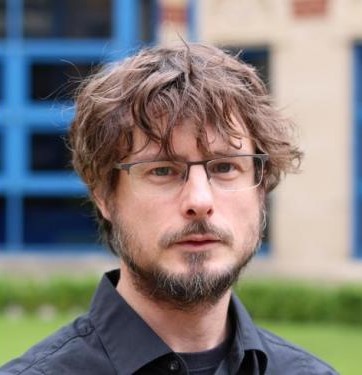CACML 2026 Speakers

Keynote Speaker I
Prof. Li Qing, The Hong Kong Polytechnic University, Hong Kong (IEEE Fellow)
Qing Li is currently a Chair Professor (Data Science) and the Head of the Department of Computing, the Hong Kong Polytechnic University. Formerly, he was the founding Director of the Multimedia software Engineering Research Centre (MERC), and a Professor at City University of Hong Kong where he worked in the Department of Computer Science from 1998 to 2018. Prior to these, he has also taught at the Hong Kong University of Science and Technology and the Australian National University (Canberra, Australia). Prof. Li served as a consultant to Microsoft Research Asia (Beijing, China), Motorola Global Computing and Telecommunications Division (Tianjin Regional Operations Center), and the Division of Information Technology, Commonwealth Scientific and Industrial Research Organization (CSIRO) in Australia. He has been an Adjunct Professor of the University of Science and Technology of China (USTC) and the Wuhan University, and a Guest Professor of the Hunan University (Changsha, China) where he got his BEng. degree from the Department of Computer Science in 1982. He is also a Guest Professor (Software Technology) of the Zhejiang University (Hangzhou, China) -- the leading university of the Zhejiang province where he was born.
Prof. Li has been actively involved in the research community by serving as an associate editor and reviewer for technical journals, and as an organizer/co-organizer of numerous international conferences. Some recent conferences in which he is playing or has played major roles include APWeb-WAIM'18, ICDM 2018, WISE2017, ICDSC2016, DASFAA2015, U-Media2014, ER2013, RecSys2013, NDBC2012, ICMR2012, CoopIS2011, WAIM2010, DASFAA2010, APWeb-WAIM'09, ER'08, WISE'07, ICWL'06, HSI'05, WAIM'04, IDEAS'03,VLDB'02, PAKDD'01, IFIP 2.6 Working Conference on Database Semantics (DS-9), IDS'00, and WISE'00. In addition, he served as a programme committee member for over fifty international conferences (including VLDB, ICDE, WWW, DASFAA, ER, CIKM, CAiSE, CoopIS, and FODO). He is currently a Fellow of IEEE and IET/IEE, a member of ACM-SIGMOD and IEEE Technical Committee on Data Engineering. He is the chairperson of the Hong Kong Web Society, and also served/is serving as an executive committee (EXCO) member of IEEE-Hong Kong Computer Chapter and ACM Hong Kong Chapter. In addition, he serves as a councilor of the Database Society of Chinese Computer Federation (CCF), a member of the Big Data Expert Committee of CCF, and is a Steering Committee member of DASFAA, ER, ICWL, UMEDIA, and WISE Society.

Keynote Speaker II
Prof. Qiu Daowen, Sun Yat-sen University, China (IEEE Senior Member)
My main research outcomes have been in the following areas. (1) Quantum models of computation. (2) Quantum query algorithms. (3) Quantum cryptograpy and quantum communication. (4) Quantum states distinguishablility and quantum states cloning. (5) Theory of computation based on quantum and lattice-valued logic. (5) The applications of fuzzy and probabilistic automata to discrete event systems, focusing on diagnosability and supervisory control.
We have published over 130 papers in peer-review journals, and over 25 conferences papers. More specifically, (1) we have systematically studied a number of different QFA (quantum finite automata) models, and solved the decidability of equivalence and minimization of these QFA models (D. Qiu, L. Li, X. Zou, P. Mateus, J. Gruska, Acta Informatica, 2011, 48 (5-6): 271-290; P. Mateus, D. Qiu, L. Li, Information and Computation, 2012, 218: 36-53;L. Li, D. Qiu, Theoretical Computer Science, 2008, 403(1): 42-51). Therefore, we have answered the problems of how to decide the equivalence of quantum sequential machines proposed by Professor Gudder, and how to decide the equivalence of MM-1QFA proposed by Professor Gruska. In particular, we have answered the problems of how to minimize QFAs proposed by Moore and Crutchfield. We proposed a model of quantum-classical finite automata, named as one-way quantum finite automata together with classical states (D. Qiu, L. Li, P. Mateus, A. Sernadas, Journal of Computer and System Sciences, 2015, 81(2): 359-375). Also, we have studied some properties of 2QFAC, quantum pushdown automata, and quantum Turing machines. (2) We have proved the characterization of all Boolean functions that can be solved by quantum 1-query algorithm. (3) We have studied quantum states discrimination and quantum cloning machines, and we have derived some bounds on unambiguous discrimination and minimum-error discrimination (some bounds are optimal to a certain extent), and some relationships between unambiguous discrimination and minimum-error discrimination have been clarified. Also, we have established a generic machine model of probabilistic cloning and deleting, and proposed a universal probabilistic deleting machine. (4) We have studied quantum teleportation and superdence coding based on different entangled states (W-states). (5) We have studied semi-quantum cryptography and proved that a semi-quantum key distribution protocol is unconditional security. (6) We have discovered some essential connections between quantum logic and models of computation, and we have established residuated lattice-valued automata theory (D. Qiu, Information and Computation, 2004, 190(2): 179-195). (6) We have established a fundamental framework of the supervisory control for fuzzy discrete event systems (FDES) and developed the supervisory control of probabilistic discrete event systems (PDES), using fuzzy automta and probabilistic automata, respectively.

Keynote Speaker III
Prof. Tao Lei, Shaanxi University of Science and Technology, China (Deputy Dean)
Lei Tao, Professor, Doctoral Supervisor, Member of the University Academic Committee, Deputy Dean of the School of Electronics Information and Artificial Intelligence, Senior Member of CCF/CSIG/IEEE; serves as a member of the Visual Sensing Committee of the Chinese Society for Image and Graphics, a member of the Image Analysis Branch of the Chinese Society of Stereoscopic Science, Standing Director of the Shaanxi Society for Image and Graphics, co-chair of the 16th International Conference on Neural Computation, Fuzzy Systems and Knowledge Discovery ICNC-FSKD2020, Chair of the organizing committee, publicity chair, and award committee chair for multiple international conferences, member of the program committee for top AI conferences AAAI2020-2024 and IJCAI2019-2024, Associate Editor of Frontiers in Signal Processing, Editorial Board Member of Remote Sensing and *Radio Engineering*, Assistant Editor of *Journal of Intelligent Systems*, and Guest Editor of IEEE J-STARS. His main research directions include artificial intelligence, computer vision, and machine learning; to date, over 80 academic papers have been published in authoritative journals and conferences both domestically and internationally, including IEEE TIP, IEEE TMI, IEEE TFS, IEEE TGRS, IJCAI, with 6 papers selected as ESI highly cited papers; he has led projects such as the National Natural Science Foundation (5 grants), Shaanxi Provincial Outstanding Youth Fund, Shaanxi Provincial Key Research and Development Program, and China Postdoctoral Science Foundation (special funding, general funding).

Keynote Speaker IV
Prof. Pietro S. Oliveto, Southern University of Science and Technology, China
Pietro Oliveto received the Laurea degree and PhD degree in computer science respectively from the University of Catania, Italy in 2005 and from the University of Birmingham, UK in 2009. He has been EPSRC PhD+ Fellow (2009-2010) and EPSRC Postdoctoral Fellow (2010-2013) at the University of Birmingham, UK and Vice-Chancellor's Fellow (2013-2016) and EPSRC Early Career Fellow (2015-2020) at the University of Sheffield, UK. Before moving to SUSTech he was Chair in Algorithms at the Department of Computer Science, University of Sheffield, UK. His main research interest is the performance analysis, in particular the time complexity, of bio-inspired computation techniques including evolutionary algorithms, genetic programming, artificial immune systems, hyper-heuristics and algorithm configuration. He is currently building a Theory of Artificial Intelligence Lab at SUSTech. He has guest-edited journal special issues of Computer Science and Technology, Evolutionary Computation, Theoretical Computer Science, IEEE Transactions on Evolutionary Computation and Algorithmica. He has co-Chaired the IEEE symposium on Foundations of Computational Intelligence (FOCI) from 2015 to 2021 and has been co-program Chair of the ACM Conference on Foundations of Genetic Algorithms (FOGA 2021) and Theory Track co-chair at GECCO 2022 and GECCO 2023.
